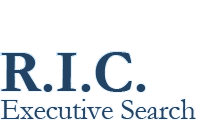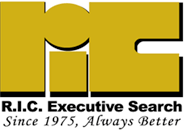ALWAYS BETTER
Extraordinary lessons to improve your business
By Tom Welch
The tagline attached to our logo reads “Since 1975, Always Better.” The first half of that statement is pretty self-explanatory. That’s when we first hung out our open sign. The second half generates more questions.
Our intent, when we developed “Always Better,” was twofold. One, every time we looked at our logo, we wanted to be reminded of one of the most critical success factors for any business, constant and never-ending improvement. Two, we hoped that when anyone else saw the logo, especially customers or potential customers, they would come to realize how important continuous improvement was to our business philosophy. And more so, we aspired to have our clients help us with those “always getting better” efforts, thus cementing relationships.
In this economy, any edge you can develop may be the differentiator for your business. If that edge involves customer support for your improvement endeavors, all the better. So, don’t you think that a persistent focus on being better today than yesterday can have a real payback to it?
We have more information at our disposal than ever before. Thousands of business books are published each year. The Internet search engines can fill our screens with whatever information we might need. Companies are spending more than $60 billion per year on training, mostly on leadership. Business schools pump out 150,000 MBA grads each year supposedly with the latest skills to improve business methods. Yet, with all this training and knowledge, most organizations are not becoming a whole lot more effective. Why?
Based on the many organizations I’ve dealt with, leaders I’ve coached and the research I’ve done, two primary reasons rise to the top. But, before you read my thoughts, think about your own organization for a minute. What could make you or your company more effective? What’s the one thing you could do better or differently that would have the highest impact on moving you or your organization closer to success?
That simplicity is purposeful because the first reason we are not more effective is that we make it too complicated. Simple gets done. Complicated does not.
When you identify the one, highest-impact action you can take to be more effective and then focus on it, it seems easy and you’ll make it happen. Have each team member answer the same question. Then, hold each other accountable for getting it done. That’s an even more effective approach because you’ve added additional accountability, yet it’s still simple.
The second issue that prevents us from continuously getting better is impatience. We expect big results too quickly. When they don’t happen, we give up and revert back to our old, comfortable behavior. Always better means always, not just for a while. It is a continuous process, not a transformation that happens after a meeting, a leadership seminar or a day of training.
Think back to some accomplishment in your life. It most likely didn’t happen in a day, a week or even a month. It took time. On top of that, it called for focus and persistence. The results of our daily actions are almost unnoticeable. Yet, when you combine the day to day results over six months or a year, you see the impact big time. No different for you or your organization as you work at becoming consistently better.
@Column-credit:Tom Welch, America’s Career Coach, is a leadership and peak performance expert and executive coach to global leaders. Contact him at twelch@ricsearch.com or visit http://www.ricsearch.com/.
The preceding article originally appeared on tcpalm.com.

